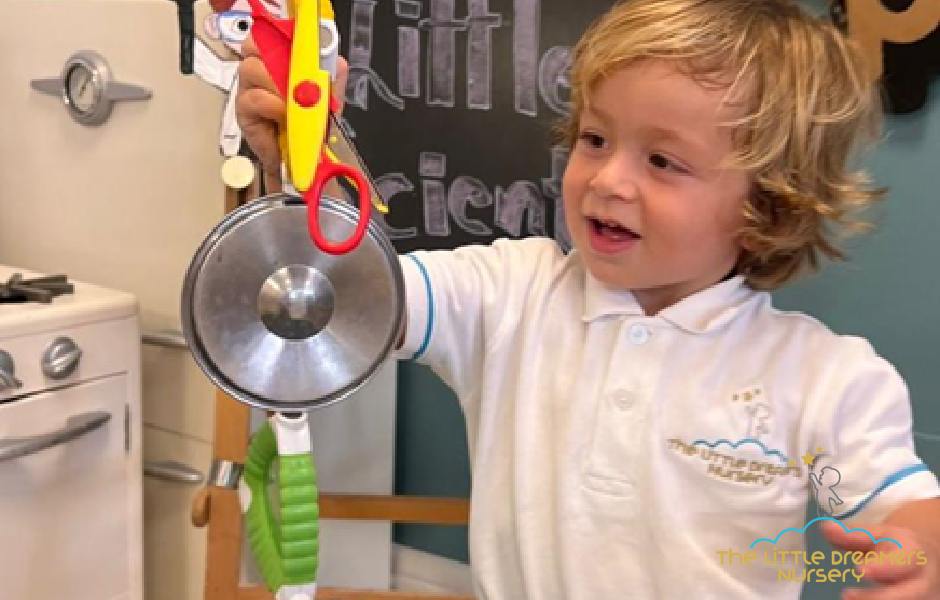Music has a powerful impact on a baby’s brain, influencing everything from language skills to emotional bonding. Even before birth, babies respond to rhythmic sounds, making musical stimulation a key part of early development.
In this guide, we’ll explore:
✔ How music influences a baby’s brain
✔ The best types of music for infants
✔ Fun ways to incorporate music into daily routines
Let’s dive into the science behind music and baby development!
How Music Impacts a Baby’s Brain
Music does more than just entertain—it shapes the way babies think, feel, and learn. Studies show that early exposure to music can:
🧠 1. Boost Brain Growth & Neural Connections
Listening to music strengthens neural pathways, helping babies process sounds, recognize patterns, and improve memory.
💡 Fact: Research from the University of Washington found that babies who listen to rhythmic patterns show faster brain development in areas related to speech and problem-solving.

🗣️ 2. Enhances Language & Communication Skills
Music helps babies distinguish sounds, which is crucial for language development.
✔ Singing slows down words, making it easier for babies to process speech sounds.
✔ Nursery rhymes expose infants to repetitive patterns, aiding word recognition.
💡 Try This: Sing simple songs like Twinkle, Twinkle, Little Star or Itsy Bitsy Spider to improve speech rhythm.
❤️ 3. Strengthens Emotional Bonding
Singing to your baby creates a sense of security and strengthens parent-child bonding.
✔ Babies recognize familiar voices, making lullabies and soft melodies comforting.
✔ Gentle humming or rocking to music can reduce stress and anxiety in infants.
💡 Fact: Studies show that singing to babies helps regulate their emotions and supports secure attachment.
🎵 4. Improves Motor Skills & Coordination
Dancing, clapping, and swaying to music enhance motor development.
✔ Babies who move to music develop better balance and coordination.
✔ Playing with toy instruments (like rattles or drums) improves fine motor skills.
💡 Try This: Let your baby clap along to a song or bounce to the rhythm for body awareness.
Best Types of Music for Infant Development
Not all music is created equal when it comes to baby brain development! Here are some of the most beneficial types:
🎻 1. Classical Music
✔ Encourages focus and enhances cognitive function.
✔ Mozart and Bach are known for structured melodies that help babies recognize patterns.
🎵 Try: Mozart’s Lullaby
🎤 2. Lullabies & Soft Melodies
✔ Helps babies relax and sleep better.
✔ Slower tempos calm the nervous system.
🎵 Try: Brahms’ Lullaby or Rock-a-Bye Baby.
🥁 3. Rhythmic & Percussion-Based Music
✔ Stimulates movement and coordination.
✔ Helps babies recognize beats and tempo changes.
🎵 Try: The Wheels on the Bus or If You’re Happy and You Know It.
🗣️ 4. Singing & Nursery Rhymes
✔ Repetitive sounds help with speech development.
✔ Enhances social interaction when sung with parents.
🎵 Try: Old MacDonald Had a Farm or Twinkle, Twinkle Little Star.
Interactive Ways to Use Music with Your Baby
👶 1. Sing to Your Baby Every Day
✔ Sing during diaper changes, playtime, or bedtime to create routines.
✔ Use fun facial expressions and hand motions for engagement.
💡 Tip: Babies love high-pitched, sing-song voices!
🥁 2. Use Musical Instruments
✔ Let babies shake a rattle, bang a drum, or press piano keys.
✔ Helps with hand-eye coordination and sound recognition.
💡 DIY Idea: Fill a bottle with rice to create a homemade shaker!
🎶 3. Dance & Move to the Beat
✔ Hold your baby and gently sway or bounce to music.
✔ Clapping hands or stomping feet teaches rhythm and coordination.
💡 Try This: Play Baby Shark and see how your baby reacts!
🌙 4. Use Music for Sleep Routines
✔ Play soft lullabies to signal sleep time.
✔ White noise or gentle instrumentals help babies relax.
💡 Tip: Keep nighttime music calm and repetitive for better sleep.
Conclusion: Make Music Part of Everyday Life
✔ Music plays a vital role in brain development, language learning, and emotional bonding.
✔ Different types of music stimulate different skills, from focus to motor coordination.
✔ Engaging in musical activities strengthens parent-child connections and promotes early learning.
💡 Action Step: Start by playing one song per day and observe how your baby responds!
🎵 What’s your baby’s favorite song? Share in the comments!








